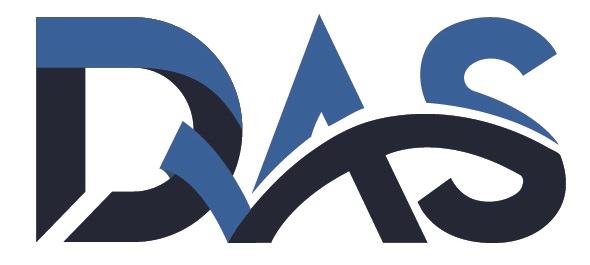Halal Food Certification
Why Halal Businesses?
One certified halal product in the shelf of stores in US as compared to 86 other products which are not certified halal, this industry is globally fast emerging business, attracting 2 billion people both Muslims and non-Muslims due to safer, hygienic and nutritious having high quality and reliability.
Pakistan has immense potential to get big share in global halal market because Pakistan is an agriculture state with more than 169 million heads of quality livestock with 74 million cattle and buffaloes and 95 million sheep and goats.
Pakistan is producing 650,402 tons Chicken meat, 73,000 tons buffalo meat, 70,600 tons cattle meat, 270,000 tons goat meat and 154,000 tons sheep meat every year.
Proper compliance of Hazard Analysis Critical Control Point (HACCP), implementation of ISO Certification system, getting meat based halal certification, up gradation of infrastructure and provision of storage facilities with HALA Food Certification will definitely help to improve the satisfaction level of common consumer.
DAS Pakistan offers assessments against the International standards and country specific Halal regulations and Halal Standards for the region. Certification enables food processors and suppliers to:
- Access the growing market for Halal Food products
- Accept food consignments into Saudi Arabia through Halal Certificate & Halal Shipment Certificate
- Demonstrate the authenticity and safety of products
- Place the National Halal Mark for Halal Products on qualifying products to be sold all-round the world
- Ensure that consumers are protected from accidentally purchasing or using non-conforming and non-Halal products, processes and services
1). Management System:
A Management System is the framework of an organization’s policies, processes, and procedures to ensure that it can fulfill all the tasks required to achieve its objectives.
2). GMPs:
Good Management Practices (GMPs) ensure that products are consistently produced and controlled according to quality standards. It is designed to minimize the risks involved in any organization that cannot eliminate through testing the final product.
3). Source Traceability:
Traceability is the capability to trace something in some cases. It is interpreted as verifying an item’s history, location, or application using documented recorded identification.
Halal Certification Bodies Accreditation Scheme
PS:5241-2013 General Requirements for the Accreditation Body Accrediting Halal Certification Bodies.
Halal Certification Bodies
PS:4992-2016 Conformity Assessment Requirements for bodies providing Halal Certification (R)
Any Organization in the Food Chain
PS:3733-2019 Halal Management Systems: Requirements for any organization in the food chain (R)
These are the following Halal Standards in Pakistan are as follows
1) Scope.
2) Normative References.
3) Terms & Definitions.
4) General Requirements.
- Sources of Halal Foods and Drinks.
- Requirements of Slaughtering.
- Meat and Meat by Products.
- Milk and Dairy Products.
- Eggs and Eggs Products.
- Cereals.
- Honey, and it’s by Products.
- Dietary Supplements.
- Enzymes.
- Packaging Material.
- Food Service and Facilities.
5) Food Processing.
6) Machinery, Utensils, and Production Lines.
7) Storage, Display and service lines.
8) Hygiene, Sanitation, and Food Safety.
9) Documentation Requirements.
- Human Resource.
- Halal Control Points.
- Emergency Preparedness and response.
- Internal Audit.
- Management Review.
10) Validation and Verification.
11) Identification and Traceability.
12) Presentation for the Market.
13) Packaging and Labeling.
The Halal food market now makes up about 19% of the global food market, from food to health care and everything in between. It is becoming a lifestyle choice in many nations.
The Global Halal industry is estimated to be worth around USD 2.3 trillion (and growing quickly).
- 90% of Raw materials related to foods are imported.
- Sometimes the meat is also imported. In Pakistan, 60% population is considered illiterate and does not understand the label.
- Mostly, the items are imported from the foods and other related things like cosmetics, leather, pharmaceuticals, etc.
- Gelatin is mainly used in imported items that are declared Pig/Fat. However, it is a protein that is obtained by the process.
All consumables should be prepared, processed, packed, transported, and stored by Islamic principles. According to Islamic dietary standards, food must not contain forbidden substances and ingredients such as pork meat, blood, alcohol, and other intoxicants.
According to Islamic law, experienced food auditors conduct food audits from the DAS Pakistan ensuring all food safety and hygiene protocols are followed.
1). Application
The business wishing to obtain Halal Certification must apply to one of the certification bodies. The industry needs to be aware of Halal Certification requirements at this stage and ensure that it complies with Halal requirements, systems requirements, and staffing requirements.
2). Audit
Once the application information is verified, Auditors will visit the business for inspection. The Auditors will confirm if the following areas are acceptable for Halal Certification.
- Documentation.
- Processing, Handling, and product distribution.
- Storage, display, and product serving.
- Cleanliness, Sanitary, and food safety.
- The overall aspects of the premises.
- Tools, Apparatus, and machines.
- Packaging and labeling.
3). Certification
Once the Halal audit is complete, a Technical Committee will review the documents and the audit report submitted by the Auditors. If the audit report is satisfactory and the business or products satisfy the Halal certification criteria, Then the Halal Certification body issues the Halal Certificate.
- Increased costs for Certification and maintaining processes deemed necessary to keep the standards.
- Another challenge faced by companies and countries in the Halal industry is the lack of standardization in the Halal certification process.
- Halal Certification from one country may not be recognized in another.
Halal Certification, which DAS Pakistan follows, has been developed in Pakistan to ensure full compliance to Islamic dietary laws, i.e., PS 3733:2016. It covers the issues related to Slaughtering and considers the issues related to ingredients & GMPs (Good Manufacturing Practices). DAS Pakistan is the go-to brand name in the Pakistan food industry regarding food safety standards and accreditations.
Because of its work ethic, industry experience, and highly trained and experienced team of food experts, the food certification from DAS Pakistan is the most sought-after in Pakistan.
